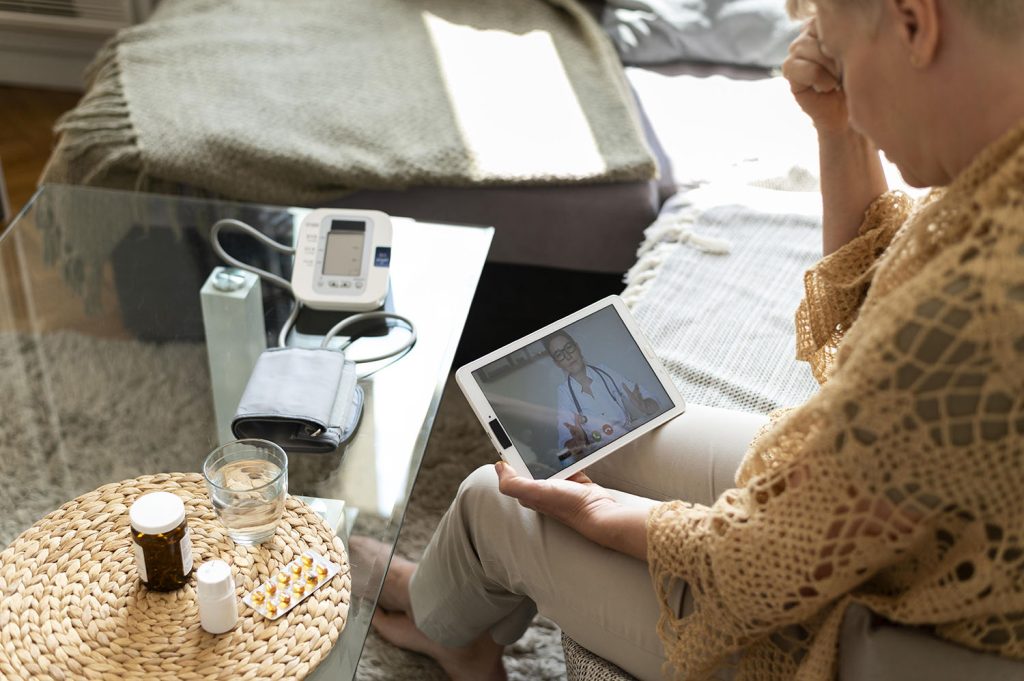In the ever-evolving landscape of social care and support services in the UK, technology stands as a beacon of progress, offering new ways to enhance the quality of life for those in need. Queensway Homes, at the forefront of personal care, support for adults over and under 65 years, individuals with learning disabilities, mental health conditions, and physical disabilities, is keenly observing and integrating these innovations. This article delves into how technology is revolutionising care, making a tangible difference in the lives of those we serve.
Enhancing Personal and Elderly Care
For adults over 65 and those requiring personal care, smart home technologies and IoT (Internet of Things) devices are game-changers. Devices such as remote health monitoring systems allow carers to track vital signs and receive alerts for any abnormalities, ensuring timely intervention. The NHS’s adoption of wearable devices like FreeStyle Libre for continuous glucose monitoring exemplifies this shift towards proactive health management.
Supporting Adults Under 65
Adults under 65, including those with physical disabilities, benefit significantly from advances in assistive technology. From voice-activated home assistants to sophisticated mobility aids, technology empowers individuals with greater independence. Innovations like SHREWD, an online database, facilitate smoother patient flow across healthcare facilities, reducing unnecessary hospital stays and enabling better at-home care.
Transforming Care for Those with Learning Disabilities
Technology offers personalised learning and support tools that cater to the unique needs of individuals with learning disabilities. Educational apps and software that adapt to each user’s learning pace improve cognitive skills and life quality. Digital platforms also foster social connections, providing individuals with learning disabilities a sense of community and belonging.
Revolutionising Mental Health Support
In mental health care, teletherapy platforms have emerged as vital tools, breaking down barriers to accessing support. Apps that offer cognitive-behavioural therapy (CBT) and mindfulness practices help individuals manage their conditions from the comfort of their homes. The NHS’s investment in AI technologies for predictive analytics can further tailor mental health interventions to the individual’s needs.
Empowering Those with Physical Disabilities
For individuals with physical disabilities, technology has opened up new avenues for empowerment. Prosthetics and exoskeletons are becoming more sophisticated, offering enhanced mobility and independence. Moreover, smart wheelchairs equipped with navigational technologies allow for safer and more autonomous movement within various environments.
The Path Ahead
The UK government’s commitment to integrating technology within care is underscored by significant investments, such as the £123 million allocated for evaluating AI technologies across healthcare. Queensway Homes recognises the importance of these advancements in providing compassionate, effective care. By staying abreast of technological innovations, we are not only improving the services we offer but also paving the way for a future where everyone receives the support they need to lead fulfilling lives.
The integration of technology in social care and support services signifies a promising horizon for improving care quality and accessibility. As we continue to explore and adopt these innovations, the potential to transform lives for the better is immense. At Queensway Homes, we are excited to be part of this journey, leveraging technology to enhance our care services and make a meaningful impact in the lives of those we serve.




